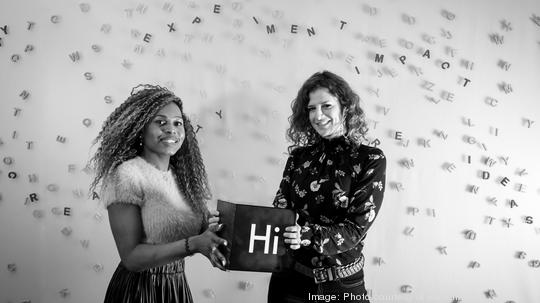
This spring, more than 188 countries implemented nationwide school closures due to the spread of Covid-19, which collectively affected about 1.5 billion students. Although these school closures were necessary to thwart the coronavirus’ reach, this disruption in education will, unfortunately, have lasting negative impacts on marginalized children from lower-income countries—especially girls and young women.
In a report titled “Girls’ Education and Covid-19,” The Malala Fund used data from the Ebola outbreak to estimate that approximately 20 million more secondary school-aged girls could remain out of school after the pandemic.
As a response to the lack of access to education for young girls and women in low-income countries, Harvard students Djénéba Gory and Anne Thibault founded Suadela.
Suadela, named after the Roman goddess of persuasion, is a program that teaches young girls and women negotiation skills through the use of in-person coaching and a digital platform. With negotiation tactics, girls can learn to advocate for themselves, their education and their health rights. Suadela will be based in the Republic of Mali.
“Our mission is to increase women and girls’ power by developing the capacity for decision and action,” said Gory.
Gory and Thibault have been refining their business model as part of the Harvard i-lab Summer Venture Program’s first virtual cohort. Originally called The Negotiat’Her Project, Suadela will enlist locally based college-educated women to teach girls negotiation tactics. These women are called Nego’Coaches.
Second, Suadela’s Nego’Coaches will provide girls between the ages of 13 and 15, called Nego’Sisters, with six sessions of in-person negotiation training.
Lastly, the company is developing a mobile application where young girls can continually practice negotiation skills through games and simulations. The app will also have training resources for Nego’Coaches to refine their teaching skills.
Suadela is adapting a negotiation training curriculum already developed by professors at the Harvard Business School and tested in Zambia.
Since Suadela will be based in Mali, Gory emphasized the importance of enlisting local Nego’Coaches.
“We don’t want to disturb the country,” Gory said. “We don’t want to be disruptive. We want to understand what people want, what they do and how we can provide some technical support… We don’t want to be parasites.”
Since women will be recruited from within the communities they are serving, they will also become more than negotiation coaches—they’ll become mentors to young girls.
Gory and Thibault, who are both from France, met last year while attending Harvard University. Gory, a former financial auditor, attended Harvard to pursue a master’s degree in public administration and to learn more about education policies, gender issues and women empowerment. Thibault, a gender inclusion and development consultant, also earned a master’s degree in public administration. After meeting at Harvard, Thibault came up with the idea to teach young girls negotiation skills.
This company, focused on creating a social impact, is personal to Gory.
“I’m French, but I deeply feel African,” Gory said. “I mean from my origin and my experience working there. I have seen that many women around me, including members of my family, didn’t really get the chance to pursue education. And it was not necessarily because they didn’t want to. It was mostly because…they couldn’t find the resources.”
In addition to a lack of financial support, she noted, young women also face a lack of support from family members to pursue education.
Gory emphasized several benefits to teaching young girls negotiation skills: They become more effective communicators, especially with people in positions of authority, they learn to advocate for their own needs, and they gain self-confidence.
“We want [young girls and women] to be empowered to make their own decisions,” Gory said. “We don’t want to tell them, ‘You have to get married. You don’t have to get married. You have to stay in school. You don’t have to stay at school.’ That’s not what the organization is doing. But we want girls to be able to advocate for what they think is best for them.”
Emma Campbell is a contributing writer for BostInno.



